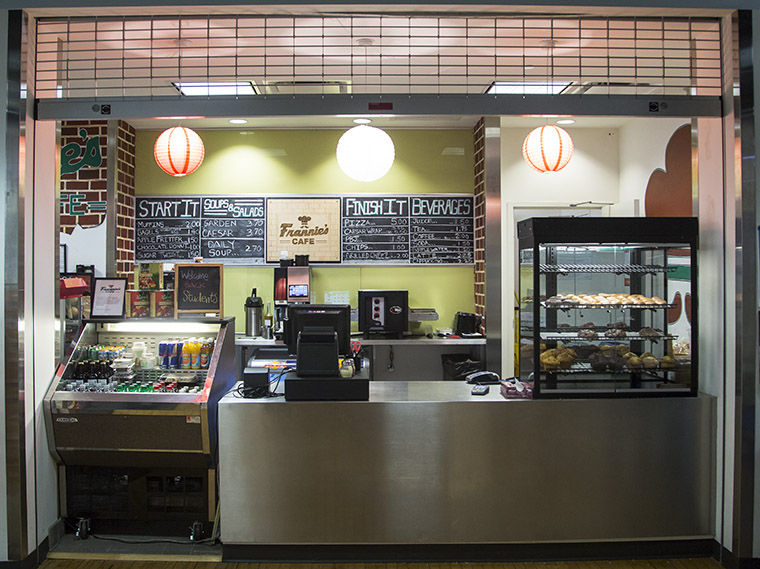New Student Group Wants “Fair Trade” Status For College
A new student group wants fair trade products, like tea, chocolate and coffee, sold at Columbia food stalls, such as the one located at 623 S. Wabash Ave.
February 8, 2016
Three undergraduate students in Fashion Studies programs are forming an organization that will aim to make Columbia a “Fair Trade College.”
The group is part of a citywide student coalition working to build individual and institutional buy-in for fair trade products such as coffee, chocolate and apparel.
The students, senior Jill Nobis, junior Katie Turner, and sophomore Olivia Cupp, said their goal is for Columbia’s bookstore and food service venues to purchase products from sources with the highest labor and environmental sustainability standards.
“Food and clothing are two of the largest markets in the world; why choose something that didn’t take labor standards into account?” Nobis asked. “Students should care about human lives and the planet.”
The “Fair Trade College” status is granted by the national organization Fair Trade Campaigns, according to Nobis.
The requirements include hosting educational events, forming a campus committee, working to ensure meetings and campus events use fair trade products and working with school officials to pass a resolution in support of fair trade, according to Fair Trade Campaigns’ website.
In the U.S, 30 universities and colleges are fair trade certified, while another 139 groups are running active campaigns on campus, according to Nobis.
The demand for fair trade products is building steadily as more people access information about ethical buying choices, according to Katherine Bissell-Cordova, the director of the advocacy coalition Chicago Fair Trade. She said Chicago has the largest number of fair trade businesses and institutions selling or promoting fair trade in the country.
“Chicago is an epicenter of fair trade,” Bissell-Cordova said.
Last month, CFT organized a summit for students from across Chicago who are interested in bringing fair trade products to their colleges and universities. More than a dozen students turned out, according to Cupp, who attended the summit.
“Columbia is a great place for [fair trade],” Cupp said. “Everyone [on campus] wants to fight for something. This club is a place for [fair trade advocacy].”
Elizabeth Shorrock, an assistant professor in the Fashion Studies Department and faculty advisor for the group, said she wants more students to think about fashion from an ethical perspective.
“You should care about the food you eat and what you wear,” Shorrock said. “It doesn’t make sense to live in isolation, not thinking about the social impact.”
Bissell-Cordova said the current generation of global citizens understands the impact they have when they advocate for issues.
“When students demand more fair trade products, businesses and education institutions listen and respond,” Bissell-Cordova said.
Turner said she wants to immerse herself into fashion but is appalled by the environmental harm created by the industry.
“Knowing I could focus on sustainable fashion helped me to fight to [improve the industry], not run away from those problems,” Turner said. “I want to see more ethical business courses offered to students in the fashion program.”
Turner said the cost of “fast fashion” is kept low by a process that hampers workers rights.
“[Clothes is] cheap because companies pay people low wages to work long hours,” Turner said.
“What is their life worth?”








